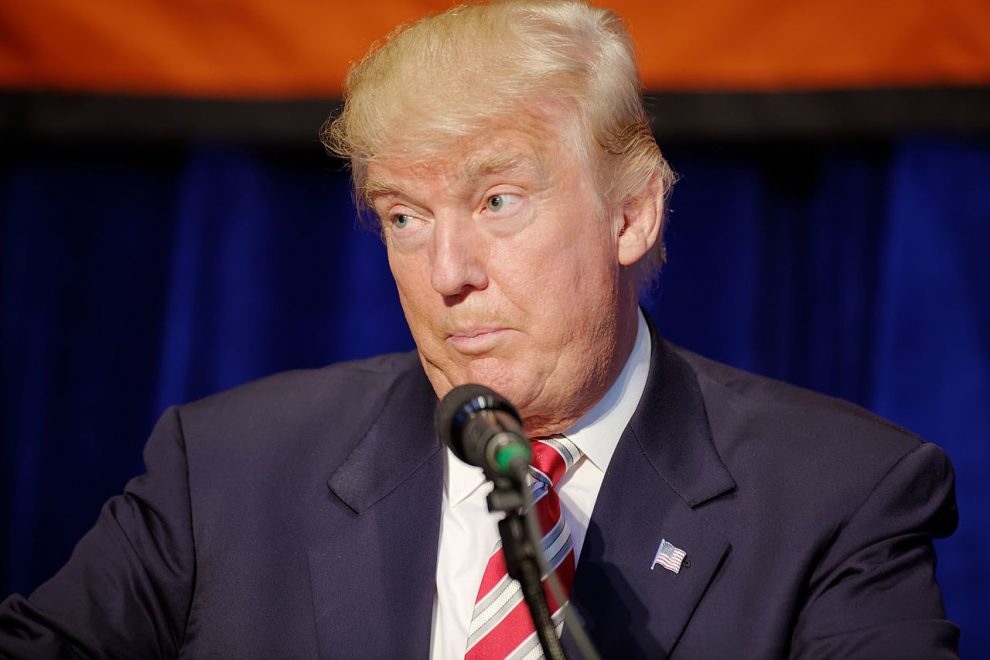THE SOIL ASSOCIATION has released a report on the potential food safety risks posed by potential free trade deals with the US following Brexit.
The preliminary steps towards a UK/US trade deal are currently being taken. Secretary of State for International Trade Liam Fox MP has recently opened preliminary discussions with US officials to consider potential opportunities and risks for the negotiations. Much press emphasis has been placed on chlorine-washed chicken, but there are a host of other regulatory divergences that could undermine UK food standards.
The report warns that a range of products produced under lower safety and welfare standards than those in force either in Britain or the EU could pose a risk to both animal AND human health, as well as damaging British agriculture’s integrity and viability.
Some of the key differences between UK and US production – hormone-treated beef, GM crops and chlorinated chicken – are becoming increasingly understood by British consumers.
The report highlights a number of other areas where products imported from the US could be produced under significantly different standards to our own: this includes the inclusion of food colourants that have been withdrawn from the UK, the use of the herbicide Atrazine that has previously been linked with human health risks, and the sale of chicken litter as animal feed which was banned by the EU in 2001.
The US Food and Drug Administration (FDA) allows a number of steroid hormone drugs for use in beef production. Cattle producers use hormones because they allow animals to grow larger more quickly on less feed, thus reducing production costs. Hormone treated beef has been banned in the EU since 1989. The 2003 EU scientific review concluded that the hormone estradiol-17β was carcinogenic. The US imposed retaliatory tariffs, which were removed when the EU agreed to allow non-hormone treated beef from the US access to EU markets. President Trump re-imposed the tariffs last year.
In the US, chicken litter (a rendered down mix of chicken manure, dead chickens, feathers and spilled feed) is marketed as a cheap feed product, particularly for cattle. The cost of chicken litter is lower than corn and soy due to the high levels of industrial broiler chicken production in the US. In the US, the use of poultry litter in cattle feed is unrestricted. The use of chicken litter has been banned in the EU since 2001 following the outbreak of foot and mouth disease and BSE. These diseases were attributed to the inclusion of animal protein in industrial animal feed.
Atrazine is estimated to be the second most heavily used herbicide in the US with 73.7 million pounds used in 2013.
It was applied on more than half of all corn crops, and up to 90 percent of sugar cane. Atrazine is a potent endocrine disruptor and reduces immune function in both wildlife and laboratory rodents. The chemical has also been found to possibly induce breast and prostate cancer. Despite these findings, the EPA still allows its use in US agriculture.
The EU banned atrazine due to its public health risks and its polluting impact on waterways.
In the United States, products that include Yellow 5 and 6, Red 3 and 40, Blue 1 and 2, Green 3 and Orange B are available for purchase and do not require labelling. In 2008, these artificial colourings were taken off the UK market due to health concerns. The UK banned these food dyes following a 2007 double-blind study, which found that eating artificially coloured food appeared to increase children’s hyperactivity. While banned in the UK, the EU requires mandatory warning on foods that include these colourants.
Honor Eldridge, Policy Officer at the Soil Association, said: “British farming has a reputation for high food safety and high animal welfare. It is imperative that any future trade deal does not result in a dilution of these standards for consumers. Nor should any deal competitively disadvantage UK farmers.
“We welcome Michael Gove’s assertion that the UK should not race to the bottom in competing with cheap imports, as well as his commitment to supporting environmentally-friendly farming practice. If the UK Government is to achieve its goal of improving and strengthening our food standards, future trade agreements must reflect these commitments. To this end, any future trade negotiations must be conducted transparently and with input from public stakeholders.”
Quite how far that meshes with Liam Fox’s urge to deregulate and open up global markets for the UK by sacrificing public and industry protections remains to be seen.

















Add Comment